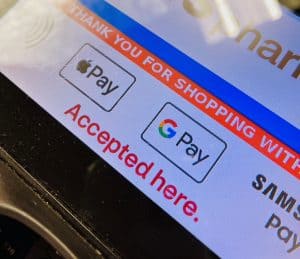 Research carried out by Think Forward Initiative and Eller College of Management, University of Arizona reveals that so-called budgeting apps are actually causing consumers to spend more money instead of helping them develop good savings habits.
Research carried out by Think Forward Initiative and Eller College of Management, University of Arizona reveals that so-called budgeting apps are actually causing consumers to spend more money instead of helping them develop good savings habits.
The design of a budgeting app usually involves showing consumers the amount of funds they’ve got remaining to spend as part of their budgets. The idea or goal is to help users avoid excessive spending, the report explained.
The report pointed out that consumers need to be careful with how they spend their money, which is why these apps have been developed. Many users require more assistance towards the end of the month, when they might be running low on available cash to spend on everyday goods and services.
To help people become better money managers, some apps provide useful budget information (like ranges instead of specific amounts available for spending), enabling users to make changes or update their budgets during a particular time period. The users of these financial management apps are also sent reminders that they may roll over the funds left in the budget into next month’s period. These features have actually been helpful when it comes to saving money, the report stated.
The study appears to be consistent with research performed a couple years ago by the George Washington School of Business that revealed that consumers who use personal finance management (PFM) tools on smartphones to track their spending and manage their budgets are actually increasing their debts and making bad financial decisions.
Proponents or supporters of these money management apps claim that they’re powered by innovative technology that can help people become better money managers, whether that involves establishing and reaching certain savings goals or for keeping their spending habits in check.
GFLEC research, performed among 1,000 adults, revealed that these financial management apps are actually causing people to spend more money. The research study, carried out among Millennial users of smartphone digital banking apps, confirmed that those who use mobile or virtual payments are more likely to spend more, and those who use their mobile phone to monitor spending aren’t doing meaningfully better compared to those who don’t use these services.
The research also revealed that around 25% of consumers who use their smartphones to keep track of spending patterns have reported actually overdrawing their accounts, which is higher than the 20% reported by people who don’t even use these types of services.
Anastasiya Pocheptsova Ghosh, Assistant Professor of Marketing at Eller College of Management, University of Arizona, stated:
“While budgeting apps are useful in addressing cognitive errors and motivational biases around memorizing, calculating, creative allocation and budget (mis)interpretation, they add a new issue: certainty in available money. Presenting users with a specific amount of money left to spend, frames it as a spending ‘goal’ which users feel they can ‘reach’. In simple terms, people tend to spend more when they are confident there is money left in their budget.”
Ghosh added:
“To better help consumers manage their finances, budgeting apps therefore need to be approached with care, or (re)designed with flexibility in mind – from flexible time periods to flexible budgets.”

